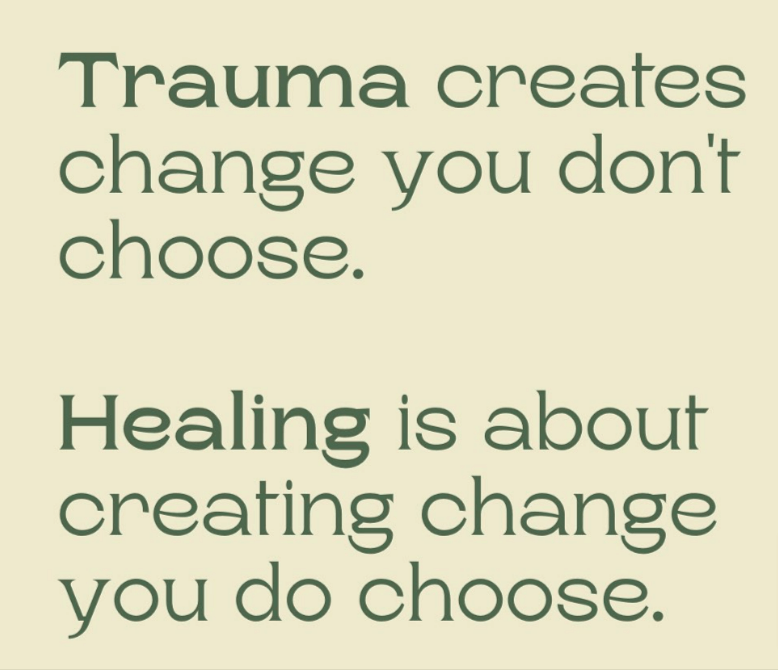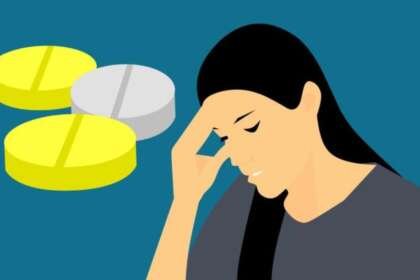Depression, anxiety, and post-traumatic stress disorder (PTSD) are just some of the mental health problems that can develop as a result of a traumatic childhood. Most people don’t know how prevalent childhood trauma is; in fact, 60 percent of U.S. adults have reported having at least one traumatic event in their youth.
The Childhood Trauma Test is one instrument that can be used to identify childhood trauma, which is a crucial first step in understanding and coping with the effects of trauma. This questionnaire assesses a respondent’s exposure to potentially harmful situations throughout their formative years and assigns a risk score accordingly.
This article will explain the purpose of the Childhood Trauma Test, how it can help those who have experienced trauma, and how to take it. We’ll also give you some numbers to help put the scales on the effects of childhood trauma on your headspace.
What is the Childhood Trauma Test?
Definition of the Childhood Trauma Test
The Childhood Trauma Test is a psychometric instrument developed to quantify the impact of a variety of traumatic events on a person during their formative years. An incident or encounter is considered traumatic for a youngster if they feel it threatens their bodily or mental safety.
The results of the exam can be used to determine whether or not a person should undergo further evaluation and therapy for possible childhood trauma.

Types of Childhood Trauma Measured By The Test
Physical abuse, emotional abuse, sexual abuse, physical neglect, and emotional neglect are all measured by the Childhood Trauma Test. Depression, anxiety, substance misuse, and interpersonal problems are just some of the long-term effects that have been linked to this kind of trauma in children.
Overview of the Test Administration
Psychologists and clinical social workers are two examples of certified mental health professionals who are qualified to conduct the Childhood Trauma Test. A structured interview or self-report questionnaire with questions on early life are common forms of this type of testing.
The victim is prompted to describe incidents of physical abuse, emotional abuse, sexual abuse, physical neglect, and emotional neglect during the interview or questionnaire. In order to better understand the respondent’s thoughts and feelings, the interviewer may ask further questions.
How the Test is Scored
Individuals’ scores on the Childhood Trauma Test are determined by their responses to an interview or questionnaire. Indicating the severity of childhood trauma, a higher score reflects more severe experiences.
While there is no universally accepted method for scoring the Childhood Trauma Test, many instruments do use a scoring system in which questions are given numerical values. The sum of the scores is interpreted in accordance with the criteria given for that particular test.
Why is the Childhood Trauma Test Important?
1. Childhood Trauma Identification Can Avert Long-Term Damage
Identifying people who have had traumatic experiences as children is a major benefit of using the Childhood Trauma Test. The harmful effects of childhood trauma on an individual’s physical, emotional, and mental health have been well-documented. Early intervention and prevention of these detrimental outcomes may be possible if those who have undergone trauma are identified.
2. Childhood Trauma and Mental Health
The effects of childhood trauma on adult behavior and mental health can be better understood with the use of the Childhood Trauma Test administered by mental health specialists. Personal identity, social connections, and resiliency can all be altered by traumatic experiences.
Mental health providers can better help patients with behavioral and mental health problems when they have a firm grasp of the ways in which the patient’s upbringing has shaped such problems.
3. Trauma-Specific Treatment
Mental health practitioners can better tailor their care for patients who have suffered trauma in their formative years with the aid of the Childhood Trauma Test. Treatment for childhood trauma might vary depending on the specific sort of trauma experienced.
Cognitive-behavioral therapy (CBT) has been shown to be effective in helping victims of physical abuse overcome negative thought patterns, and trauma-focused therapy has been shown to be effective in helping victims of sexual abuse overcome PTSD symptoms.
Who Should Take the Childhood Trauma Test?
Those who have gone through rough patches as kids are the ones who most frequently take the Childhood Trauma Test. But it might be useful for anyone who has ever wondered how their upbringing might have influenced their mental health now.
Some indicators that suggest taking the test include:
- Experiencing PTSD symptoms include reoccurring nightmares, disturbing flashbacks, and avoidance of reminders of the traumatic event
- Struggling with mental health problems like anxiety, depression, or others
- Having a previous record of substance or behavior dependency
- Relationship or intimacy issues
- A state of emotional isolation from other people
- Previous attempts at self-harm or suicide ideation
If you are feeling emotionally or psychologically distressed, it is recommended that you seek professional help. If you or someone you know is experiencing any of these symptoms, consulting a mental health professional can help you figure out if the Childhood Trauma Test is right for you and get the help you need if it is.
What to Expect from the Childhood Trauma Test Results
The results of the Childhood Trauma Test can tell you a lot about a person’s emotional and mental health, as well as their history of traumatic events when they were growing up. The expected test results are as follows:
Understanding the Scores and What They Represent
Individuals’ levels of exposure to emotional abuse, physical abuse, neglect, and sexual abuse during childhood can be quantified with a score on the Childhood Trauma Test.
The individual’s scores in each of these areas may be broken down in the findings as well, providing a more detailed picture of their experiences.
What a High Score Means
A high score on the Childhood Trauma Test could suggest that the respondent endured severe trauma as a youngster. A person’s mental health problems including depression, anxiety, and post-traumatic stress disorder (PTSD) can worsen as a result of this.
However, the Childhood Trauma Test can be helpful in identifying those who may be at elevated risk for these negative effects, and a high score does not guarantee that an individual will experience them.
What a Low Score Means
A low score on the Childhood Trauma Test may be indicative of a lack of significant traumatic experiences during formative years. Note, however, that a low score does not necessarily rule out childhood trauma, as the test may not pick up on all possible types of trauma.
Some people may not show signs of childhood trauma because they have encountered trauma later in adulthood.
How to Cope with Childhood Trauma
There are strategies to cope with and manage the impacts of childhood trauma on an individual’s emotional and psychological well-being. Here are three methods that have proven useful in the past:
Seeking Therapy and Support
Individuals who suffered traumatic experiences as children may benefit from therapy. A trained mental health practitioner can offer a safe space to work through painful thoughts and memories, and can also assist in the development of coping mechanisms.
If you need extra emotional support, talking to friends, relatives, or a support group can be very helpful.
Learning Coping Mechanisms
Mindfulness practices, meditation, exercise, journaling, and creative expression are just some of the coping techniques that can be useful in dealing with the after-effects of childhood trauma. Using these methods, people can deal with intense feelings and strengthen their ability to bounce back from setbacks.
Creating a Support System
It is essential for those dealing with childhood trauma to establish a network of support. Seeking professional help from a therapist or counselor, signing up for a support group, or enlisting the help of reliable friends and family members are all viable options.
It’s vital that people have somewhere they can go where they won’t be judged and where they can share their stories without fear of repercussions.
Frequently Ask Questions
What is the Childhood Trauma Test?
Adverse childhood events, such as abuse, neglect, or exposure to violence, can be measured with the help of the Childhood Trauma Test, a questionnaire. The test yields a score that can be applied to individuals to determine their potential risk for adverse events.
How Does the Childhood Trauma Test work?
The Childhood Trauma Test is a self-report questionnaire about childhood trauma. “Did a parent or other adult in the household often or very often…swear at you, insult you, put you down, or humiliate you?” “Did you often or very often feel that no one in your family loved or thought you were important or special?” The quantity and severity of unfavorable childhood experiences are determined from the person’s responses.
Why is it Important to Take the Childhood Trauma Test?
Understanding and coping with the effects of childhood trauma require first recognizing the presence of such trauma. The results of the Childhood Trauma Test can be used by mental health practitioners to better understand a patient’s history of traumatic experiences and develop individualized treatment plans.
Is the Childhood Trauma Test a Diagnostic Tool?
The Childhood Trauma Test is not intended to diagnose any particular mental disorder. Instead, it’s a method of pinpointing adults who may have been set up for trouble by traumatic events in their youth.
Is the Childhood Trauma Test Appropriate for Everyone?
Some people might not benefit from taking the Childhood Trauma Test. Some people may find it challenging to take the test if they are experiencing emotional discomfort or have undergone major trauma in the past. Before taking the test, it is recommended that you speak with a mental health professional about any concerns you may have.












